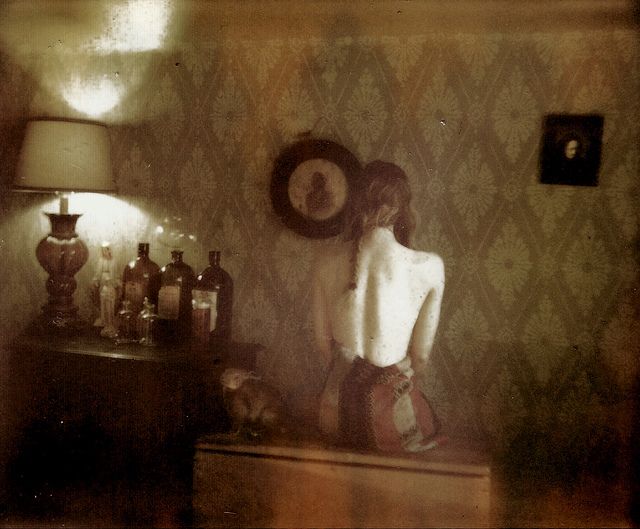
“When I get lonely these days, I think: so BE lonely, Liz. Learn your way around loneliness. Make a map of it. Sit with it, for once in your life. Welcome to the human experience. But never again use another person’s body or emotions as a scratching post for your own unfulfilled yearnings.”
~ Elizabeth Gilbert, Eat, Pray, Love.
~
Loneliness has always plagued me.
Not the loneliness that comes from being alone, as generally I’m pretty content in my own company. But throughout my life I’ve felt a deeper loneliness, something stemming from childhood feelings of abandonment and rejection. Not feeling loved, wanted or accepted—and the inadequacy and shame that have come from that.
It’s typical for most people with these kinds of issues to swing on an emotional pendulum between fear of engulfment and fear of abandonment.
I tend to err on the fear of engulfment side most of the time, creating space and distance between myself and others. I combat feelings of loneliness with a fierce resolve to never need anyone or anything. To be independent. Self-sufficient. To do this on my own.
It seems less complicated to live this way, to abolish any kind of neediness or vulnerability, both of which I fight to stay ahead of.
It may not be healthy. But it works.
That is, until the pendulum swings the other way and I enter into fear of abandonment. Here, loneliness engulfs me, threatens to undo me. Loneliness, to me, is an unbearable feeling, something to avoid at all costs. It triggers within me the feelings of rejection and abandonment from childhood—feelings I do not want to experience or deal with.
In the past, I have done whatever it takes to avoid these feelings.
I have kept busy to the point of being so hectic I don’t have a moment to think or feel.
I have gathered myself under the umbrella of perfectionism—my shield, my way of control.
I have become fanatical about health, fitness, the scales.
I have numbed, disconnected, disassociated.
I have used the usual vices: food, alcohol, sex, shopping, television.
I have self-destructed in ugly ways.
And I have used other people to fill the void in me. I have placed unspoken expectations on them to meet my needs, to make me feel better, to distract me, to take away the emotions within me I haven’t been willing or able to deal with.
But it’s never right to expect other people to heal our wounds. To place those demands on another. To give them the responsibility to make us somehow feel whole. We, the wounded, carry our empty buckets around and we ask other people to pour into them—to fill us, to complete us. And yet, our buckets are cracked, broken, full of holes, and it matters not how much others pour in, it’s never enough. And we become more needy and more dependent on others to continue to fill our buckets, and when they can’t, we become disillusioned, disappointed, angry, resentful.
It’s not the responsibility of another to heal us. It is our responsibility to heal ourselves. We must become healed. We must become whole. We must repair our broken buckets and become fulfilled within ourselves, through ourselves, by ourselves.
We must stop expecting others to fill what is so unfulfilled in us.
The last 12 months have been a time of transformation for me. But transformation doesn’t come easy. It requires enormous effort to acknowledge and accept our brokenness, to be mindful of old coping mechanisms and learn new ones, to learn to sit with emotions, become familiar with them, understand them. Not to numb them, flee from them, or resort to unhealthy patterns and habits to deal with them. It is such an intentional thing to transform a lifetime of thoughts, patterns, actions and reactions.
It isn’t easy or comfortable. We slay our dragons, and with each one we defeat, a new one appears. Loneliness has been one of my biggest dragons. Just when I think I have gained a victory, it appears again. It’s the most dangerous for me. It rips open my wounds of rejection and abandonment, triggers the most reaction in me, and drives me to unhealthy and destructive coping mechanisms.
Recently it rose up within me again, with its threats to devour me. With its lies that I am unlovable, inadequate, not enough, unworthy. Except, this time, I was prepared. I didn’t run from it, or flee back to my usual coping mechanisms. I was mindful. I allowed loneliness to enter in. I sat with it, got to know it, understood it. I let it project its torrent of negative emotion on me. I listened. I was sympathetic to it, to its origin, the place it was first created in my life. I understood it.
And then I sent it away.
Enough. No more.
We are each responsible for our own emotions, and we must make the choice not to allow them to rule or control us. To not project our emotions onto another person and expect them to consummate the unfulfilled yearnings in our hearts.
Loneliness is a hard friend to make, but a good one to have.
Start by becoming comfortable with being alone, and with feeling lonely sometimes. Feeling lonely won’t hurt you; it won’t kill you. Sit with loneliness, and allow it to fall upon you. Recognize it, understand it, learn from it. Fight the urge to run back to your usual coping mechanisms, or usual people you have relied on in the past to fill your voids. Learn to ask for what you need from friends and loved ones in healthy relationships. Find your support network, and remove people from your life who don’t support you, love you without condition and help carry you through your times of struggle.
Loneliness is part of the human experience. We cannot leave this earth without having experienced it, felt it, suffered it. Sometimes simply from being alone. Sometimes from something deeper that requires much more work to heal. But the work must be done for us to live wholehearted lives and join people in healthy relationships.
~
Author: Kathy Parker
Image: Lauren Treece/Flickr
Editor: Toby Israel
~








Read 2 comments and reply